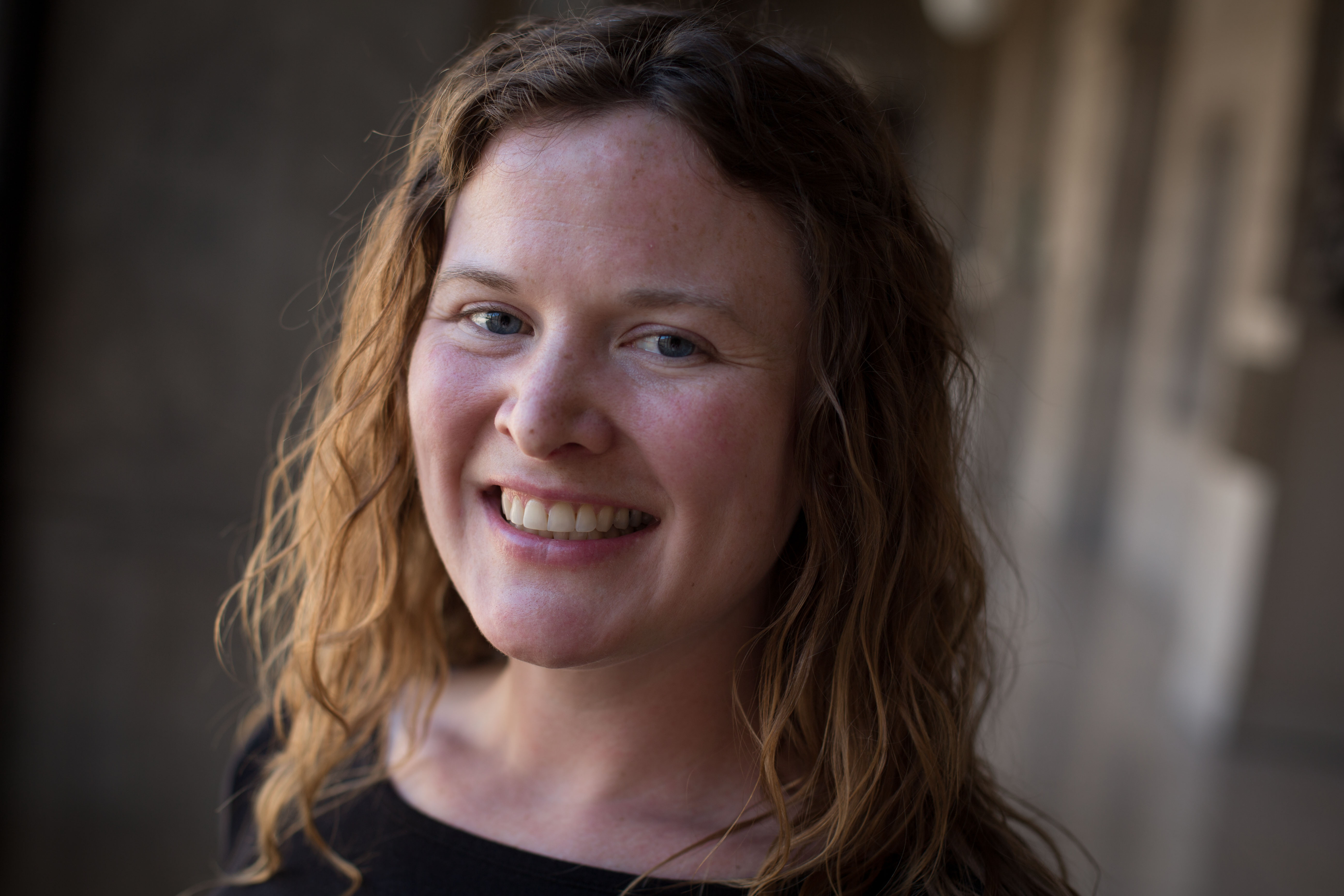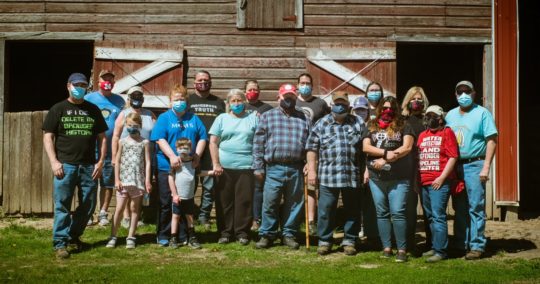

Maggie Squires is a candidate for Nebraska’s Lower Platte South Natural Resources District, Subdistrict 6
(view map of Subdistrict 6, Lincoln area)
Click here to give $10 now to support Maggie Squires for NRD.
- Maggie’s campaign website
- “Like” Maggie for NRD on Facebook
- Click here for the full New Energy Voter Guide
When I met Maggie Mae Squires for the first time, it was at the end of a long day near the close of the 2014 legislative session at the Nebraska Unicameral. I found her in the hallway outside Senator Bill Avery’s office, where she works as an aide, joking with Senator Norm Wallman, vice chair of the Agriculture Committee. She flashed a bright smile when she saw me approach and offered to show me around the capitol. We walked to the rotunda to view the elaborate mosaics and then up to the second floor where a row of tall, narrow, leaded glass windows looked out onto the courtyard. Even though Maggie’s days at the Capitol are fast-paced and jammed with meetings, she tries to make time to pause in these quiet places, to appreciate her good fortune to be part of the political process.
She often is reminded of her great-great grandmother Mary Ann Fairchild, who was also no stranger to Nebraska politics. One hundred years ago, Fairchild began working as a clerk in the Nebraska State Insurance Department. Through hard work and an encyclopedic knowledge of the industry, she rose in the ranks. By 1923, she had been appointed by the auditor and attorney general as bureau chief. It was about that time that Fairchild posed in front of the old state capitol, sporting an elegant feather hat and black wool overcoat and long skirt, on a walkway cleared of freshly fallen snow. Maggie is proud of her great-great grandmother, a strong and intelligent woman who excelled in a trade almost entirely dominated by men. She considers Fairchild’s legacy a gift—and an inspiration.
Maggie was born in Valentine, Nebraska. After her parents divorced when she was very young, she lived with her mother in North Platte during the school year and spent summers on the Rosebud and Pine Ridge Reservations where her father was an art teacher. One summer, on land he owned in Interior, South Dakota, near Badlands National Park, Maggie and her father built an adobe house together that he still uses as his art studio and cabin retreat. She recalls the many hours of her youth that she spent with her father traveling “the most beautiful stretch of highway,” between Valentine and Sturgis, South Dakota.
While Maggie was attending Hastings College, her mother gave her the family’s old ‘70s Land Cruiser. Eager to replicate those hot summer days driving with her father, she recalled, “I turned my truck north and drove.” She spent as much time as possible camping and fishing on the Niobrara River. “I loved seeking out new adventures, and the promise of discovery always kept me coming back.” Maggie transferred to Nebraska Wesleyan and graduated with a degree in philosophy and minor in physics. Her senior thesis was a study of the Native American tribes of Nebraska.
Maggie’s connection to the land, wildlife, and people of Nebraska gives her a unique perspective as an NRD candidate. “For too long,” says Maggie, “we have been happy with the status quo. We resist change. But that’s not going to work anymore, because everything is changing around us. Weather patterns are changing. More and more, we are faced with weather extremes—droughts and floods.” Maggie understands that one of the most important issues that NRD boards face is groundwater allocation, but she seeks a more balanced approach that does not risk the future of our natural resources. “We have to consider more sustainable management strategies. We need to use our water and our land a lot smarter.”
Maggie believes that a sustainable long-term plan to protect our natural resources would be rooted in a local, community-based approach. “For too long the Lower Platte South NRD board has kept a narrow focus on water supply concerns,” she explains, “and I would support a broader focus that builds on the NRD’s stated mission, which is to protect the state’s natural resources.” Maggie advocates a management program that balances environmental sustainability, protection of groundwater and surface water resources, protection of wildlife, and wise-use education with the economic viability of local farming and ranching operations.
A lifelong passion for Nebraska’s land and its people is an inherited tradition for Maggie, passed down to her by four generations. She understands the need to balance the state’s agricultural tradition with the protection of its natural resources, and she feels committed to making policy in the best interest of everyone in Nebraska—now and for generations yet to come.





